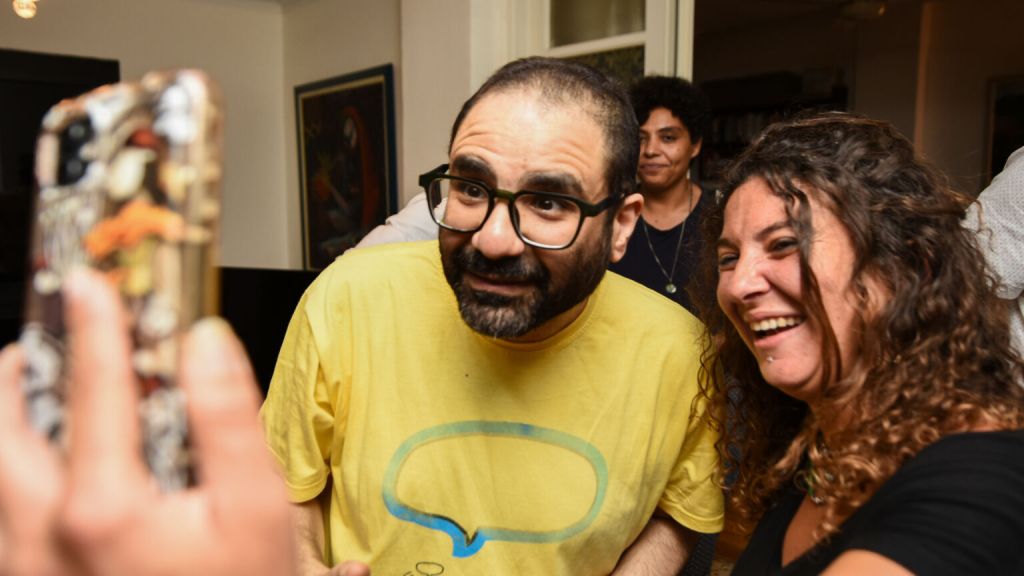If I have blogged very little of late, at least on political topics, there are two reasons. Firstly I have been toiling through a very difficult book, which I wish I had read years ago. It explains so much of what I have written in the past — while often tediously bemoaning my incomprehension of the phenomena I was addressing — that I was afraid to write more without finishing it. Secondly, the task I have been attempting for so many years is now being performed more effectively, successfully (and to an audience of millions) by new arrivals on the scene. When the points I was trying to make were generally not being discussed, it made sense to light my small candle, rather than curse the darkness. Now these new guys have lit their arc lights and are turning them on the enemies of Reason and Liberty, not so much.
One of those new guys, Professor Jordan Peterson, recommended his readers to the book I mentioned. It is Explaining Postmodernism by Stephen Hicks and it does what it says on the cover. I commend it to you. It’s hard going because, well, it’s a philosophy book but it’s worth the effort even if (as it has for me) it consumes weeks of your life. There is a unifying, nihilistic philosophy underlying many of the things that so annoy you and me about modern thought. It has respectable intellectual antecedents going back to Rousseau and Kant.
Much as the Liberty-minded blogosphere might like to point fingers at Common Purpose etc. (and much as that and other similar organisations are informed by Postmodernist thought) the truth is we don’t need a conspiracy theory to understand how so much of academia has been lost to Reason and even to Virtue. There is a rational explanation for the unreason, nay anti-Reason of most professors in the Social "Sciences" and many in the Humanities.
To quote an elegant review of the book by Gary Jason of the Philosophy Department at California State University;
Hicks begins by sketching out in broad terms what modernism is. Modernism is the worldview produced by the Enlightenment over the last four centuries. Roughly characterized, modernism involves naturalism in metaphysics, with the confidence that modern science is capable of, and is actually succeeding in, giving us an understanding of the physical universe. Modernism involves what he calls objectivism in epistemology, meaning the view that experience and reason are capable of gaining real knowledge, although modernist philosophers have hotly contested the specifics of this (with Rationalism, Empiricism, and Pragmatism being the most historically active epistemological schools). Modernism involves individualism in ethics, and a commitment to human rights, religious toleration, and democracy in political theory. Modernism also involves the acceptance of free-market economics and the technological revolution that it has spawned. In sum, modernism is the mindset that is common to the West, the laborious product of many great minds – Bacon, Locke, Descartes, Smith, Hobbes, Spinoza, Galileo, Newton, and Hume, among others. Most of us view this as a considerable leap forward from the medieval period of supernaturalism, mysticism, excessive reliance on faith, and feudalist political and economic systems.
In the last 50 years or so, however, a group of thinkers have set themselves in opposition to the whole Enlightenment project. These soi-disant postmodernists reject the Enlightenment root and branch. Chief among the postmodern thinkers are Jacques Derrida, Michel Foucault, Jean-Francois Lyotard and (amazingly, an American) Richard Rorty. These thinkers, together with a host of smaller fry… , have developed a large following in the humanities – especially literature, less so in philosophy – and in the social sciences. They have developed virtually no following in science, math, computer science, and engineering… The postmodern mindset views the whole Enlightenment project as a failure. The po-mo view is metaphysically anti-realist and anti-naturalist, holding that the physical universe is not ultimately describable in final terms. It is socially subjectivist in epistemology, holding that the "world" is what we socially construct, and each "group" (racial, gender, linguistic, ethnic, national or what have you) constructs the world according to its group identity. Postmodernists are egalitarian and collectivist in matters ethical and political. (If there are any postmodern libertarians or conservatives, I have yet to hear of them)
I am relieved to have an explanation but humbled by its complexity. The book gives my ideological pain a rational framework just as my elementary readings in economics since I retired have given me a vocabulary for the real life phenomena I experienced at work. In both respects, I’m a little wiser perhaps but no better. And no more effective neither.
Which is why, exhausted and humbled as I am (and as no Po-Mo true believer will ever be) by my efforts at understanding, I am happy to direct my few, but much esteemed by me, readers to the ongoing work of Professor Peterson and the unconnected populist polemicist Milo Yiannopolous. Professor Peterson is bringing both courage and academic rigour to the defence of the West against Po-Mo, while Milo is a kind of court jester who draws attention very effectively to the insanity of its activists; going so far as to provoke them into displays that will discredit them in the eyes of most people. Milo and the Professor have little in common but their enemies, who are wildly denouncing both of them in Po-Mo's characteristic hysterical terms. And, perhaps, their religious belief.
That's ironic as the respectable 18th Century roots of Po-Mo thinking lie in the over-reaction of the religious to the perceived threat to religion of such writers of the Age of Reason as my hero Tom Paine. Rather than attack the ideas of such people, some of their religious contemporaries attacked Reason itself, casting doubt on Man's ability to explain his universe. The same faith that led those moderate and sensible thinkers into error, may now be giving courage to those opposing the insane modern consequences of that error. That doesn't worry me at all, though I am not religious myself. In fact it gives me hope because people who think themselves to be doing God's work are likely, in practice, to persist where others falter. The political event that shaped my life and career – the fall of the Soviet Union – would not have happened without the faith of Pope John Paul II and his lay helpmates; Ronald Reagan, Lech Walesa and Margaret Thatcher.
I will chip in on political topics when I can, particularly where they concern my personal "goddess", Liberty. However, I will confine myself to practical observations. For serious thinking on the existential threat to the West, I commend you to Professor Peterson. For polemics against the enemies posing that threat, I commend you to Milo.








Leave a comment